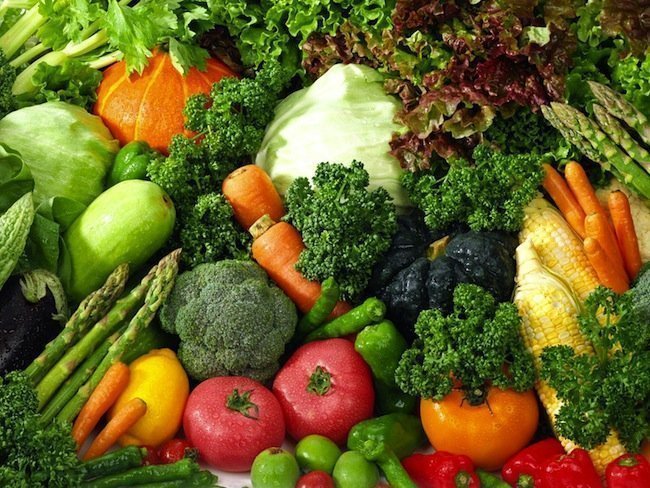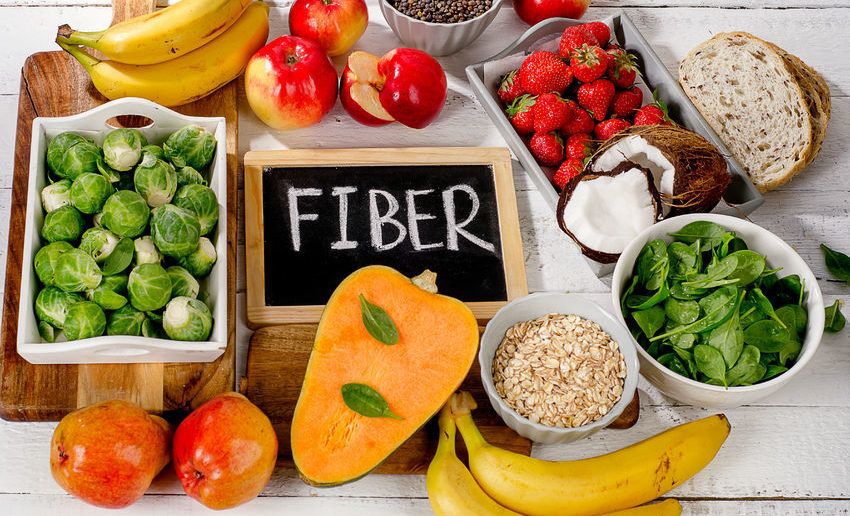Note: this post has been updated in September 2021.
Fiber is one of the Essential Nutrients
Dietary Fiber is considered by many to be one of the Essential Nutrients along with water, carbohydrates, fats, proteins, vitamins, and minerals. One may ask why does fiber matter, and the answer is yes it does matter! Also, you may want to read Understanding different types of fiber.
Eating dietary fiber foods can make a difference to your health
Most of us have heard that we need to eat dietary fiber every day. Do you know why? If you think it is the old “roughage” concept from your grandmother, there is a little more to it than that. The other thing you may not know is just how many bodily functions fiber is essential to maintain – even your brain function! Got your attention? Read on to understand why fiber does matter.

What is Dietary Fiber
What is Fiber?
Put simply… dietary fiber is indigestible carbohydrate found in foods.
Classically, fiber is split into two categories based on its solubility in water:
Soluble fiber dissolves in water and can be metabolized by the “good” bacteria in the gut.
Insoluble fiber does not dissolve in water.
Another more useful way to categorize fiber is “fermentable vs non-fermentable” – that is, whether the friendly bacteria in the gut can use it or not.
It’s important to keep in mind that there are many different types of fiber, just like there are many different types of fats.
Some of them have important health benefits, while others are mostly useless.
The health authorities recommend that women eat 25 grams of fiber per day and that men eat 38 grams per day.
The Main Reason Fiber is Beneficial, is That it Feeds The “Good” Bacteria in The Intestine
There are about 500 different species of bacteria living in the intestine, total number about 100 trillion. The bacteria in the gut are also known as the gut flora.
There are many different kinds of bacteria… and the type (different species) of bacteria can have a dramatic effect on various aspects of health, including weight, blood sugar control, immune function and even brain function.
But what does that have to do with fiber?
Well… like other organisms, bacteria need to eat. They need to get energy from somewhere in order to survive and function.
The problem is that most carbs, proteins and fats get absorbed into the bloodstream before they make it to the large intestine.
There is nothing left for the gut flora. This is where fiber steps in… humans don’t have the enzymes to digest fiber and therefore it reaches the large intestine relatively unchanged.
However, the intestinal bacteria DO have the enzymes to digest many of these fibers.
This is the most important reason that (some) dietary fibers are important for health. They feed the “good” bacteria in the intestine, functioning as prebiotics.
The friendly bacteria produce nutrients for the body, including short-chain fatty acids like acetate, propionate and butyrate, of which butyrate appears to be the most important.
These short-chain fatty acids can feed the cells in the colon, leading to reduced inflammation in the gut and improvements in various digestive disorders like Irritable Bowel Syndrome, Chron’s disease and Ulcerative colitis. – via healthline
What an Expert says about Dietary Fiber
In the excerpt below we see what Jo Ann Hattner, MPH, RD told Everyday Health about fiber and its significant role in the human gut. She has advice about how much fiber is good and how to know when you get too much.
Jo Ann Hattner, MPH, RD (gutinsight.com)
Fibers are primarily non — digestible carbohydrates. Fibers are components of plant foods, fruits, vegetables, dried beans and peas, lentils, nuts, and seeds — any food that is classified as a plant. The fiber provides structure. Think of the celery stalk and the obvious vertical fiber strings that one often gets caught in their teeth. In addition, because fibers are non — digestible, they contribute to stool bulk and add form to the stool. People with irregularity are often advised to increase their fiber and fluid intake.
But can you get too much? Well yes, you can get too much of anything. But you will know. When you eat too much fiber your digestive system may be overwhelmed and you will suffer from abdominal bloating and pass excessive gas. You don’t want that, so keep an open mind and just eat as much fiber as you personally need to keep regular and enjoy a flat abdomen.
Another really important role of fiber is that some fibers are prebiotics — meaning they are fermented in the colon by the healthful beneficial bacteria. The products of this fermentation, which include short chained fatty acids, are thought to be healthful to the lining of the colon. In addition the acidic milieu that results from the fermentation is unfriendly to the survival of the pathogenic (harmful) bacteria which cause illness and may contribute to an unhealthy colonic environment.
– via EverydayHealth.com
Making dietary fiber a part of your everyday diet?
Do You get enough dietary fiber? If not, do you plan to increase the amount of dietary fiber you eat? If not, you may want to increase your intake of dietary fiber by eating whole foods. Science confirms that a diet rich in whole, plant-based foods can help you live to the fullest. In fact, a growing number of physicians advocate a completely plant-based diet for many of their patients who suffer from diabetes, heart disease, and cancer.
Did you enjoy reading this post?
I hope you enjoyed reading this post. If you did, please use the buttons below to share with family and friends you think may benefit from the information in the post.
Express your opinion
f I can answer any questions or if you have an opinion that you would like to express, please let me know your thoughts by leaving a comment below. I would love to read your comments!



0 comments